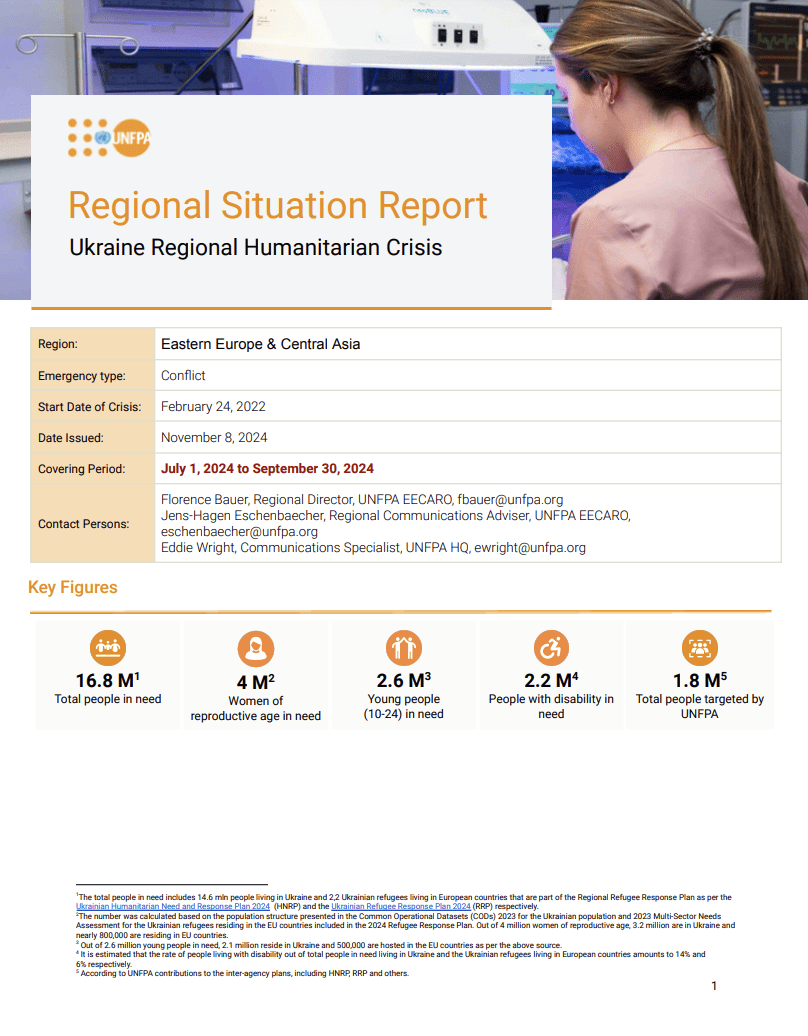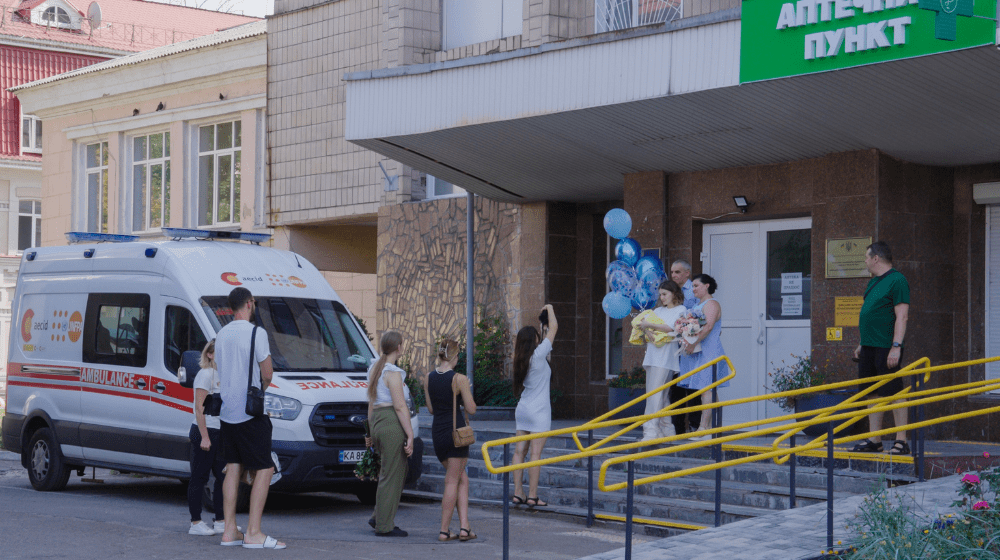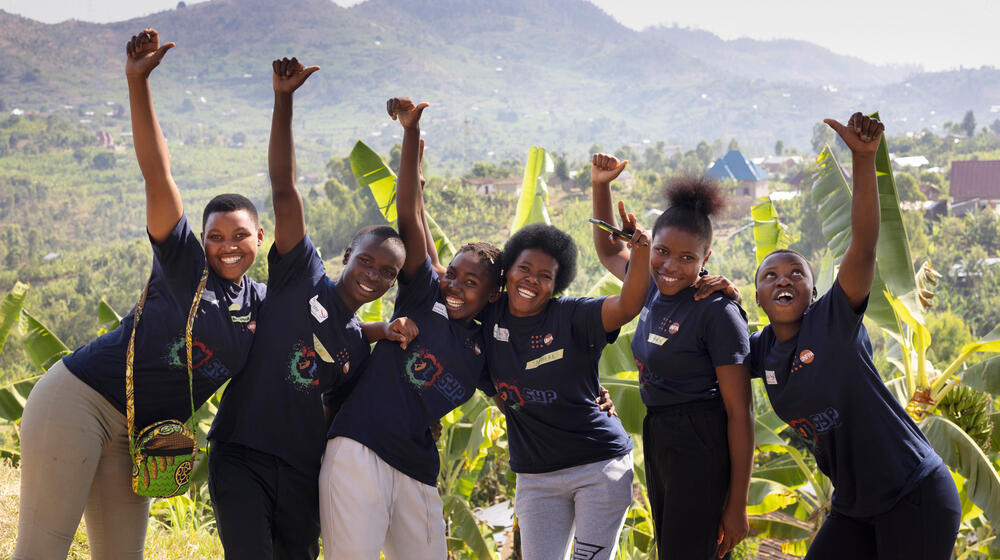-
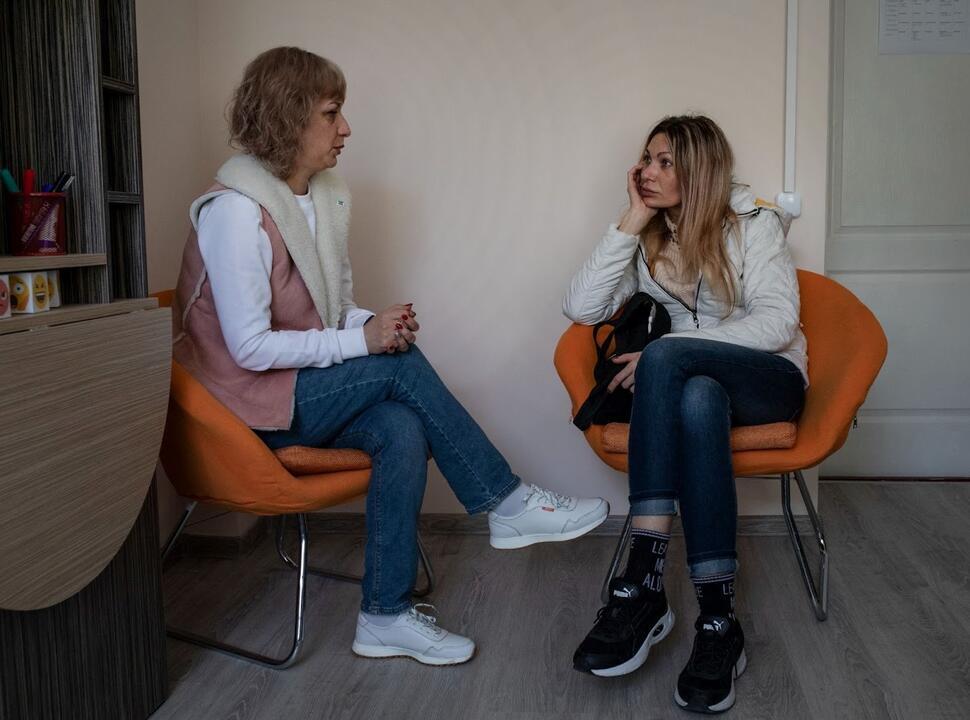
It’s been 100 days since Russia’s recent invasion of Ukraine, with far more grim tallies: lives lost, families separated, homes and infrastructure destroyed, futures upended, dreams ended. More than 6.9 million people – an estimated 90 per cent of them women and children – have fled Ukraine to surrounding countries and beyond with an additional 8 million displaced within the country, contributing to another devastating milestone: over 100 million people forcibly displaced globally, according to the United Nations Refugee Agency. One of those neighbouring countries is the Republic of Moldova (population: around 2.7 million), which has become home for now for some 87,000 refugees.
Conflict and crisis exact a massive toll on women and girls – particularly the displaced – who are vulnerable to sexual violence, exploitation and abuse. Pregnant women have given birth underground or within health systems under duress. Many women, including the elderly, have had to rebuild lives in unfamiliar lands without partners who could not leave home. Here are five of them, who share how their lives changed since that fateful day of 24 February and how their new lives in the Republic of Moldova are unfolding.
Marina fled Ukraine with her children, a 15-year-old daughter and a 9-year-old son, at the start of the conflict. Their father stayed behind. Before the war, her son, Timur, was busy planning a summer with his grandfather, while Marina was trying to reconnect with her daughter. Now her children are struggling to cope in a new country. “I feel that my daughter is becoming even more distant every day,” Marina said. “She misses her friends and wants her life back. Marina is seeing a psychologist at UNFPA’s youth-friendly health clinic in Chișinău to talk about how she can support her children – and herself – at this difficult time. “We are all just waiting for the war to end,” she said, “and to go back home.” © UNFPA Moldova
-
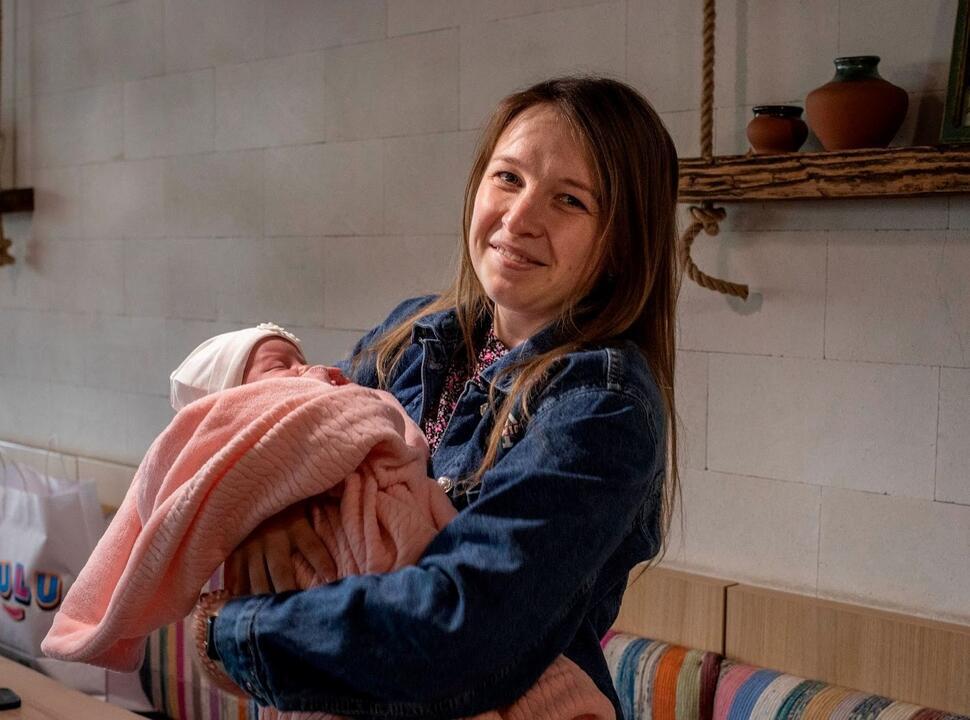
Olga fled from Ochakiv, close to the southern port city of Odessa, with her four-year-old son, Timofey. They are hosted by a family in Balti, where Olga gave birth to her daughter at the local hospital without her partner. “Our New Year’s resolution was to buy a new home. We planned to celebrate the birth of our baby girl and our son turning five at our new house with our family and friends.” Then the bombings started. “Today everything has changed,” she said, “and nothing is certain.” © UNFPA Moldova
-
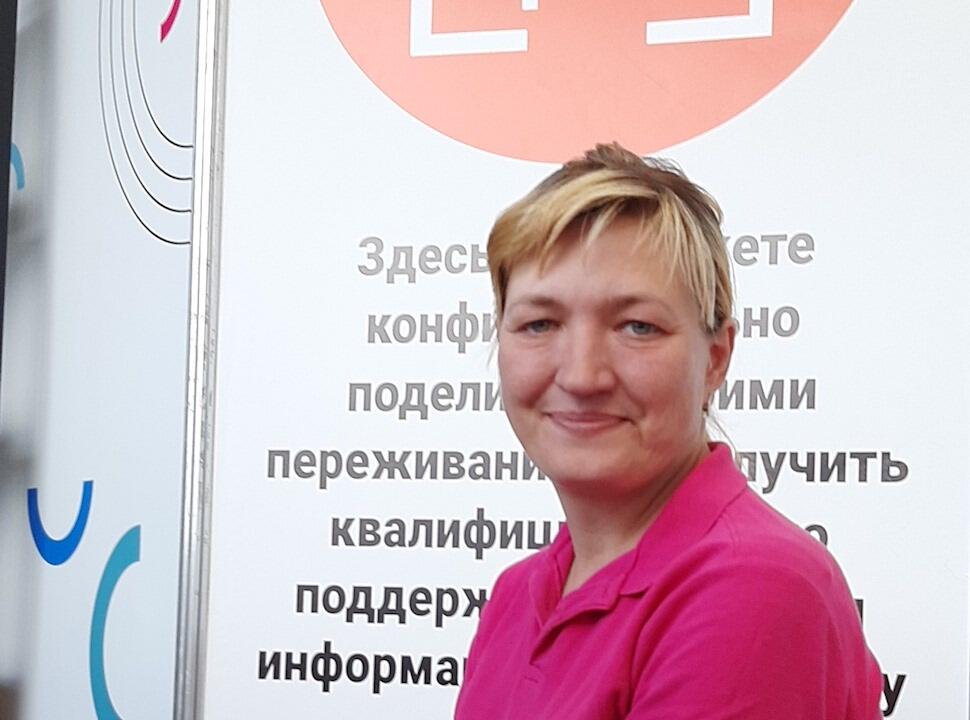
“The war has changed my plans. I have reassessed my values,” said Yelena from Nikolaevo, Ukraine. “I was so busy with my daily life and problems, but it turns out these are not important at all. What is important is family, their safety and our support for each other.” Yelena has not given up hope of returning home – she dreams of buying a house in the countryside living a quieter life after so much upheaval. She sees a counsellor at one of UNFPA’s nine Orange Safe Spaces providing psychosocial support in the Republic of Moldova, which is helping her deal with the trauma of a disrupted present and an uncertain future. For now, her dreams must wait. © UNFPA Moldova
-
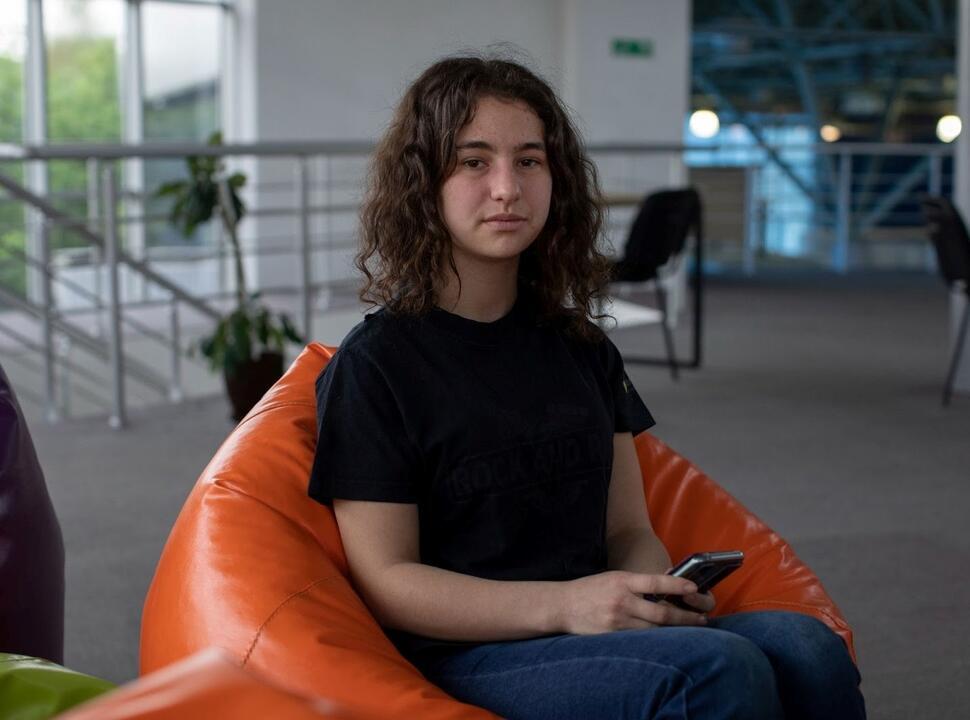
“Our farm was our life,” said Margo, a 20-year-old veterinarian from the Odessa region who fled her home with her mother, younger siblings and best friend, Svetlana, when the bombs began to fall. Youth is already a fraught time when the young are figuring out their lives, but their confusion and insecurities have soared since the war began: “My friends and I are unsure of what the future holds.” Margo is trying to hold fast to her aspiration of changing careers and becoming a make-up artist by training online at an Orange Safe Space for young people. © UNFPA Moldova
-
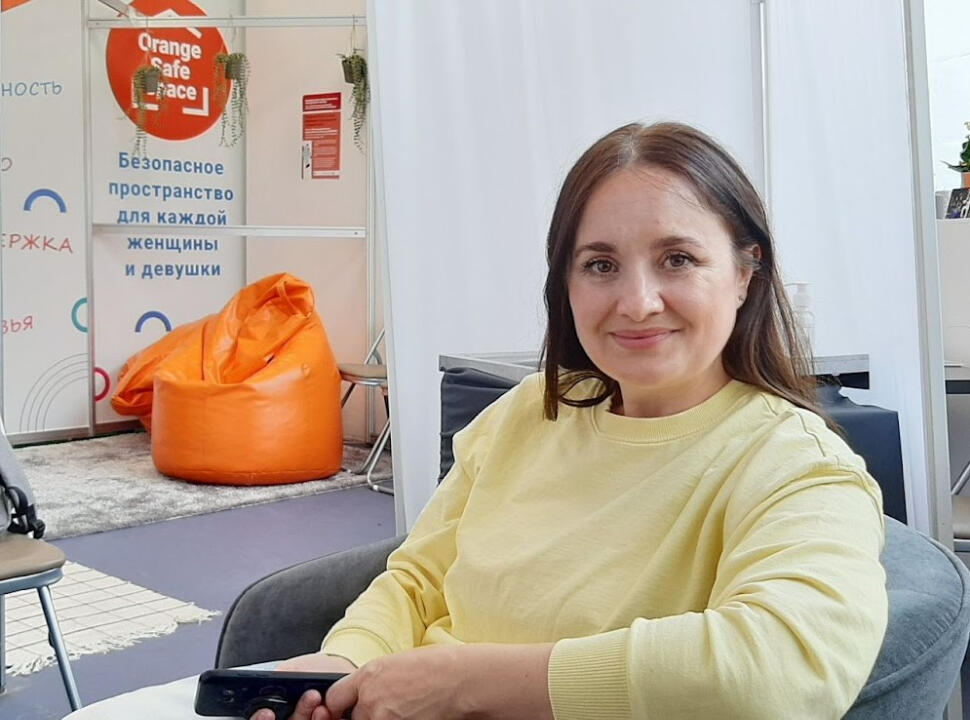
Irina, who hails from Kyiv, compares herself to a piece of stretched string, describing the weight of emotions and fear she has been carrying. “When driving to Moldova, I sped like crazy because I was terrified to be under the open sky, scared to be in the wrong place at the wrong time,” she recalled. Irina is one of hundreds of women who visit the Orange Safe Space at the Moldexpo Centre in Chișinău, which is currently accommodating refugee families. There she can unburden herself to a counsellor and try to find the strength to keep moving forward. “The sky,” she said, “will never be the same for me.” © UNFPA Moldova
In addition to establishing safe spaces for women and youth in the Republic of Moldova, UNFPA has delivered over 10 metric tons of reproductive supplies, medicines and equipment for emergency obstetric care, sexually transmitted infections treatment and clinical management of rape to hospitals; signed an agreement with the Republic of Moldova’s National Health Insurance Company to ensure free sexual and reproductive health care for refugees; delivered post-rape kits to all emergency units, maternity wards and youth-friendly health clinics; and helped train more than 1,200 health professionals in the clinical management of rape and on sexual and reproductive health in crises.
- Home
- Slideshows
- 100 Days of War in Ukraine: Lives Interrupted
100 Days of War in Ukraine: Lives Interrupted
02 June 2022
